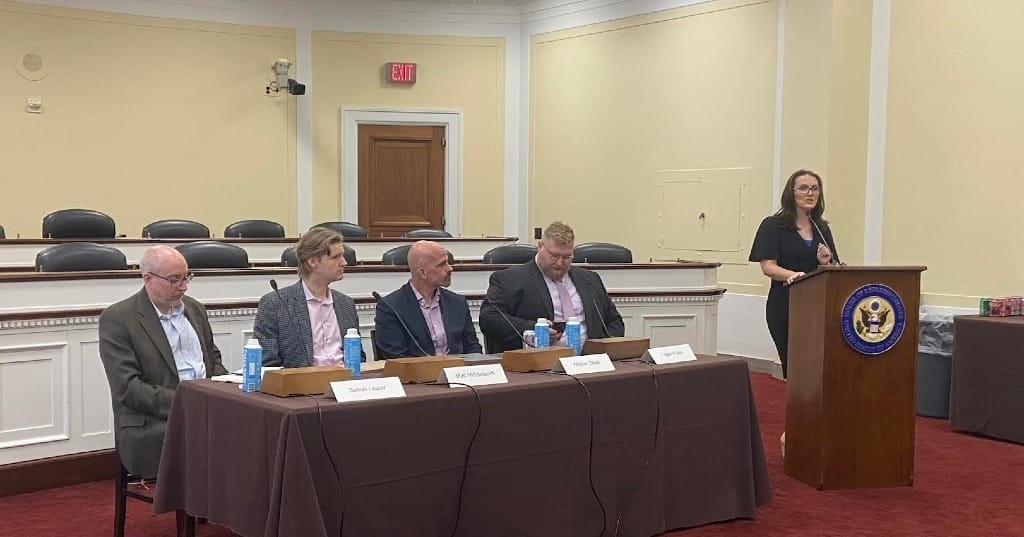U.S. Needs Tech Regulation Unification, Experts
'If you're negotiating an international agreement, it's crucial that you have a clear, unified point of view within your government.'
Taormina Falsitta

WASHINGTON, July 25, 2024 – The United States needs a unified approach to tech regulation when approaching the global stage, said experts at an American Consumer Institute panel discussion on Tuesday.
The U.S. faces challenges negotiating international agreements due to the lack of a coherent position within the government, said Simon Lester, founder of WorldTraidlaw.net, an online library that provides resources on global trade. "If you're negotiating an international agreement, it's crucial that you have a clear, unified point of view within your government."
He pointed out that, unlike the European Union, which can present a cohesive position when negotiating with other countries, the U.S. struggles to do so. Within the U.S. government, various entities such as trade representatives, the Federal Trade Commission and the Department of Justice have differing opinions and priorities.
Lester said that without this coherence, it becomes difficult to convince other nations to agree to favorable terms. Internal discord can result in the U.S. being sidelined in critical discussions, losing influence and the ability to shape global regulations and standards, he warned.
Logan Kolas, Director of Technology Policy at The American Consumer Institute, broached on how European tech regulations are targeting the U.S. “roping in American companies and subjecting them to aggressive investigations and allegations of anti-competitive harm. This often results in billions of dollars in restitutions and fines, and it also leads to negative impacts for consumers”
The recent “global IT outage highlights a concerning trend of vulnerabilities that can affect government servers, which can be greatly reduced by ensuring increased competition in the procurement space. Depending on few or single vendors is not the answer.” said the Computer and Communications Industry Association Vice President for Federal Affairs Brian McMillan.
At a Senate Hearing on enhancing cybersecurity Thursday, John Miller, the General Counsel at trade association Information Technology Industry Council, said that in order to drive better cyber harmonization, the White House’s Office of the National Cyber Director “must follow through on its work implementing the national cyber strategy to implement an actionable plan to harmonize existing cyber regulations and hold federal agencies accountable for following through.”
Miller said that the U.S. “should align existing and future cyber regulations around a common taxonomy, including definitions and risk management controls grounded in international standards.” He added that it should define a standardized clearing process for new cyber regulatory activity to prevent future fragmentation and implement a structured reciprocity process across federal agencies to clarify objectives.
“Reciprocity among federal agency requirements is critical to reduce redundant compliance costs on industry,” he said. He urged Congress to “drive actionable cyber harmonization solutions and use its oversight authorities to make sure that the current and future administrations follow through.”









Member discussion